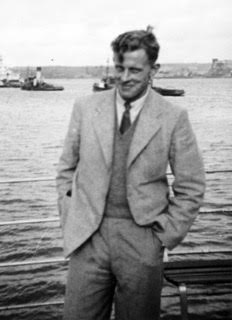RAMM’s Holly lends a helping hand at Fairlynch

Image credit: Royal Albert Memorial Museum and Art Gallery and Exeter City Council
It seems appropriate in 2013 to remember
the links between Exeter ’s Royal
Albert Memorial
Museum www.exeter.gov.uk/ram and the much smaller Fairlynch Museum.
It was exactly two hundred years
ago that the first steps towards a museum for the city were taken when the
Devon and Exeter Institution opened in 1813, with the aims of “promoting the
general diffusion of Science, Literature and Art” and of “illustrating the
Natural and Civic History of the County of Devon and the City of Exeter.” And it was in that year that Henry Carter,
one of the county’s great scientists, pictured below, was born in Budleigh Salterton.
Hair of Siberian mammoth Elephas primigenius found in ice at Elephant Point at Eschscholtz Bay North Coast of America. Acquired by RAMM 2 February 1881 from a bequest made by Henry Carter
Holly, on the left, is pictured with a colleague Emily Feltham putting the finishing touches to a display of glass sponges kindly loaned by RAMM
So RAMM’s contribution to Fairlynch Museum's
bicentenary exhibition in Carter’s honour was only to be expected. After all,
the world-renowned sponge expert from Budleigh is known to have presented at
least 38 zoological and botanical specimens to the city’s museum between 1875
and 1885 during his retirement, including British and Australian sponges,
corals and mammoth hair from Eschscholtz
Bay in North
America .
Hair of Siberian mammoth Elephas primigenius found in ice at Elephant Point at Eschscholtz Bay North Coast of America. Acquired by RAMM 2 February 1881 from a bequest made by Henry Carter
Image credit: Royal Albert Memorial Museum and Art Gallery and Exeter City Council
Fairlynch was fortunate in coming
into contact with Holly Morgenroth, now RAMM’s Curator of Natural History.
Brought up in Otterton, Holly knows the Budleigh area well and immediately
volunteered her help when Fairlynch’s Michael Downes turned up unannounced at
RAMM with his plans for a bicentenary tribute to Carter.
“We really appreciate Holly’s
expertise and readiness to help make a success of our exhibition,” said
Michael. “We may be a small museum but our ‘Sea, Salt and Sponges’ show to
honour Henry Carter has been marked by lots of enthusiasm and goodwill from a
wide range of contributors. We have rare
fossils, amazing Victorian medical equipment, beautiful crystals, strange-looking
sponges and even some very special art work to make an enjoyable experience for
visitors.”
Holly began her museum career in Plymouth Leicester University she worked at the National Museum of Wales
in Cardiff New Zealand , during which she spent a
fascinating week’s work experience at Auckland War
Memorial Museum
During her time in New Zealand
Holly, on the left, is pictured with a colleague Emily Feltham putting the finishing touches to a display of glass sponges kindly loaned by RAMM
The Venus’
flower basket sponges on display at Fairlynch
These
extraordinary specimens including Euplectella
aspergillum - better known as
Venus’ flower basket - continue to fascinate and inspire naturalists and
collectors alike today. The broadcaster and naturalist Sir David Attenborough
chose Glass sponges as one of his top ten most beautiful and most remarkable living organisms among endangered
species. They were featured in a BBC Two
wildlife special entitled ‘Attenborough's
Ark
Fairlynch’s
exhibition ‘Sea, Salt and Sponges’ is open from Friday 29 March until the end
of September. The Museum is open daily except Saturdays from 2.00 - 4.30 pm.
Admission is free. For further information see www.devonmuseums.net/fairlynch








Comments
Post a Comment